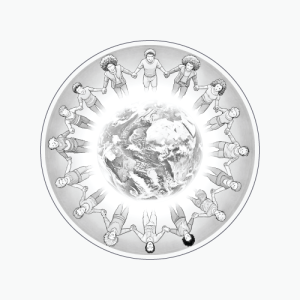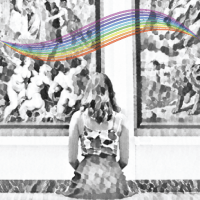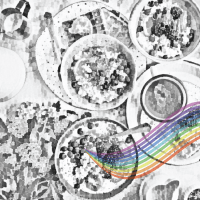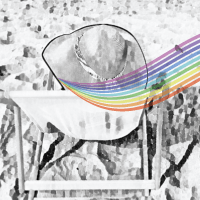
In the modern age
is outing gay people right or wrong?
- Atilla Tiriyaki
- Average Reading Time: 7 minutes
- Community, Questioning
- articles, atillat
Nearly all smartphones can now capture high-quality images instantly. It would be so easy to take a picture right now, and you might even be able to make a lot of money from selling the story or photograph to the press. However, you pause for a moment and begin asking yourself why this celebrity is hiding this aspect of their life. Is he afraid of the impact on his career? Perhaps he is bisexual, married or worried about hurting his family.
Over the years, whenever a well-known celebrity comes out, it positively impacts many within the LGBTQIA+ community. Not only on the community members but also those coming to terms with their gender or sexuality. As part of the acceptance process, we often look to others similar to us or identify as we do. The role model to follow or just the person who inspires us to accept who we are and our true self. Suppose you are unable to identify with or only have decade-old stereotypes as a reference. Well, without positive representation, there is a risk that some may begin self-loathing, even drawing further into themselves, denying who they are. So, if your favourite celebrity, pop star or football maverick declared that they were LGBTQIA+, it would give many the confidence to accept themselves. It sounds like a cliché; however, if a person can identify with someone from a similar background, they often find it easier to come to terms with themselves in a positive way.
The term outing dates back to the 1980s and was used as a political tool to reveal individuals hiding their sexuality publicly. Outing an individual, especially those who were openly against and vocal about LGBTQIA+ matters, whereas privately, they were secretly in same-sex relationships. Outing in those situations showed the hypocrisy and helped stop the rhetoric.
Today, many people struggle to understand how difficult it was to accept who you were growing up in the 70s and 80s. One major factor was an epidemic that affected thousands, was shrouded with confusion, and saw many dying within the LGBTQIA+ community. It was a disease that was initially unfairly labelled as the gay disease as it can be contracted through unprotected sex and contaminated blood. The disease did not discriminate, affecting members of the LGBTQIA+ community and conservative heterosexual couples alike. At the time, there was fear, anger and hostility towards people from within the LGBTQIA+ community. Knowing that someone was gay, regardless of whether someone had HIV or not, meant people would often think twice about interacting with them. Fearful of contracting the disease, people would not touch them or use anything they had come into contact with or used. Part of the fear was due to the many misconceptions around how the disease was contracted. Not only that, but this was the 1980s, and terms such as “queer” and “fag” were freely and frequently used by all. Role models were few and far between, and those in the public eye were often portrayed negatively. It was a difficult time for a young man or woman to identify as gay.
The press and members of the LGBTQIA+ community would often out well-known individuals, usually to take them down. Some were open about their sexuality after being forced to reveal who they were in a bid to manage their own story or narrative. Outing for some was a positive experience; they were living a lie, afraid of sharing their true self with the world and its potential effect on their careers and lives. Having someone do it for them meant they were reacting, forced to accept it. Those outed in the 80s that are still in the public eye in 2019 continued having successful careers, and many became advocates for LGBTQIA+ rights.
Outing had become so widespread that it is not just celebrities that were outed; children at school were outing classmates. Even when there was little or no evidence, rumours were spread without evidence or basis of fact. Though some community members may feel outing overall is positive, many negative aspects are associated with being outed. Firstly, many lack empathy for the individuals concerned. Without knowing someone’s family, beliefs, social-economic background, you cannot assume that outing them will positively affect them. What if a person is unsure of their sexuality and is exploring, only to be outed, having any decision they wish to make taken away? Positive role models are crucial and essential for the wider community, but so is having willing participates, people who have decided to share a part of who they are with the world.
Outing, in my opinion, is a harmful and outdated practice. By fostering an environment where people want to identify and be part of the community, you should not force them to accept who they are. Some may struggle their entire lives to accept their truth, but all we can do is provide support and help. In 2019, there are so many well-known, positive role models, people living ordinary lives. The stigma of being gay has become less and less; however, that is not true for every country worldwide. Religious beliefs and discrimination are still heavily featured within the legal systems in many countries. People are being assaulted, even losing their lives because of their gender or sexuality, aspects of themselves that they are powerless to change. There is now a new threat with hostilities towards the community. Over the past five years, there has been a rise in right-wing politics. Agendas and policies that look to undermine the progressive laws in a bid to take the world back 100 years.
Whether you take a photograph, share it with the world and even take the money is your decision to make, however ultimately accepting who you are is a personal and private matter. In 2019, should we not continue making positive developments within the community and make sports and pop stars alike find it easy to accept who they are and want to come out when they are ready. Being LGBTQIA+ is not a choice between being or not; it is who you are. If you cannot find someone similar to you or with beliefs you may hold, you could be the first, the inspiration for someone else in the future.






























